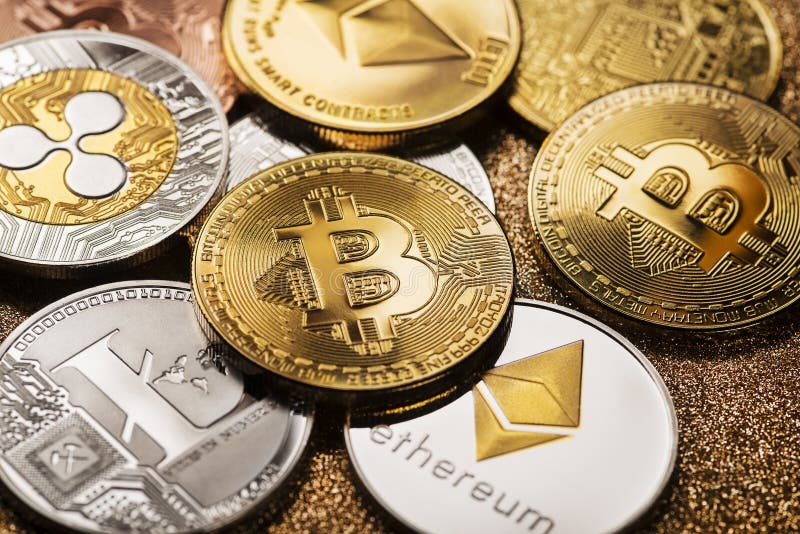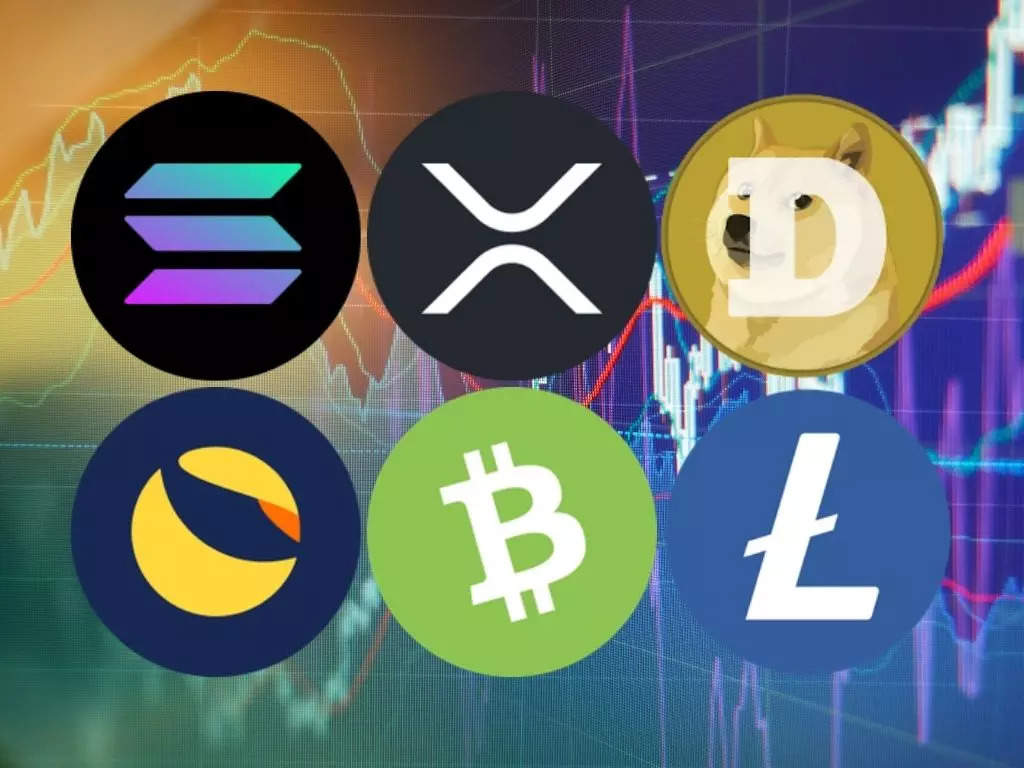In recent years, cryptocurrencies have gained tremendous popularity and recognition, with Bitcoin leading the way as the first and most valuable cryptocurrency. However, Bitcoin is just one example of a broader ecosystem of cryptocurrencies, known as altcoins. These alternative digital currencies offer unique features and functionalities that go beyond what Bitcoin can offer.
Altcoins, short for alternative coins, are any cryptocurrency that is not Bitcoin. They are often created as a response to the limitations and drawbacks of Bitcoin, aiming to address specific use cases or improve upon existing technology. Some of the most well-known altcoins include Ethereum, Litecoin, Ripple, and Cardano. Each altcoin has its own distinguishing features, such as smart contract capabilities, faster transaction times, or enhanced privacy.
In addition to altcoins, there is another type of digital asset known as tokens. Tokens are built on existing blockchain platforms, such as Ethereum, and serve a specific purpose within a decentralized application or ecosystem. Unlike altcoins, tokens do not have their own dedicated blockchain but instead rely on the underlying platform’s infrastructure. Tokens can represent ownership in a company, voting rights, or even access to a specific product or service.
As the cryptocurrency market continues to evolve and mature, it is important for investors and enthusiasts to explore beyond Bitcoin and delve into the world of altcoins and tokens. By understanding the unique features and use cases of different cryptocurrencies, individuals can make informed decisions and take advantage of the broader opportunities offered by the digital asset ecosystem.
Understanding Altcoins: A Diverse Landscape of Cryptocurrencies
While Bitcoin is often seen as the pioneer and poster child of cryptocurrencies, the world of digital assets goes far beyond the realm of this popular cryptocurrency. Altcoins, short for alternative coins, are a diverse landscape of cryptocurrencies that have emerged in response to Bitcoin’s dominance. These alternative cryptocurrencies offer unique features, technologies, and use cases that differentiate them from Bitcoin.
Altcoins encompass a wide range of digital assets, each with its own distinct characteristics and purposes. Some altcoins, such as Ethereum, have introduced smart contract functionality, allowing developers to create decentralized applications (DApps) on the blockchain. Others, like Ripple, focus on facilitating fast and low-cost international money transfers. Meanwhile, privacy-focused altcoins like Monero and Zcash prioritize anonymity and secure transactions.
Altcoins often serve as testbeds for innovation and experimentation in the cryptocurrency space. Developers and entrepreneurs are constantly seeking to solve existing limitations or explore new possibilities through the creation of altcoins. This leads to a constant influx of new projects, concepts, and technologies, making the altcoin landscape a dynamic and ever-evolving ecosystem.
As the altcoin market continues to grow, investors and enthusiasts have a wide array of options to choose from. Whether it’s a cryptocurrency with a niche focus, a unique consensus mechanism, or a revolutionary use case, altcoins provide diversity and flexibility in the digital asset space. It’s essential, however, for those interested in altcoins to conduct thorough research and due diligence before investing or participating in any project, as the landscape can be volatile and subject to scams or fraudulent activities.
Types of Altcoins
Altcoins can be categorized into various types based on their characteristics and functionalities:
- Forks: Some altcoins are created through a process called a fork, where a new cryptocurrency is formed by modifying the existing codebase of an established coin, usually Bitcoin. Forks can be classified as “hard forks” or “soft forks” depending on the level of compatibility with the original blockchain.
- Tokens: Tokens are cryptocurrencies that are built on existing blockchain platforms, such as Ethereum. They leverage the infrastructure and functionalities of the underlying blockchain but have their own specific use cases or utility within a particular ecosystem.
- Privacy Coins: Privacy-focused altcoins prioritize user anonymity and secure transactions by implementing advanced cryptographic technologies, such as zero-knowledge proofs or ring signatures.
- Platform Coins: Platforms like Ethereum and EOS have their own native cryptocurrencies that are used to fuel transactions and incentivize network participants. These platform coins often serve as the backbone for decentralized applications and smart contracts.
- Utility Coins: Utility coins are used within specific ecosystems or platforms to enable various functions or services. They can represent ownership rights, provide access to products or services, or serve as a means of exchange within a closed network.
The diverse landscape of altcoins offers a glimpse into the vast potential of cryptocurrencies beyond Bitcoin. Each altcoin brings something unique to the table, catering to different needs and preferences within the digital asset space. Exploring altcoins can be an exciting journey for those interested in the world of cryptocurrencies and blockchain technology.
Should You Invest in Altcoins?
Investing in altcoins can be a highly profitable venture, but it also carries significant risks. The altcoin market is highly volatile, with prices fluctuating wildly and new projects emerging on a regular basis. Before investing in any altcoin, it’s essential to conduct thorough research, analyze the project’s fundamentals, evaluate its market potential, and assess the associated risks.
It’s also crucial to diversify one’s investment portfolio and not put all eggs in one basket. Allocating a portion of funds towards altcoins can be seen as a higher-risk, higher-reward strategy, but it should be done cautiously and with a long-term perspective.
Exploring Tokenization: Unlocking New Possibilities in the Digital Economy
Tokenization is a concept that has gained significant attention in the world of cryptocurrencies and blockchain technology. In simple terms, tokenization refers to the process of converting a real-world asset into a digital token on a blockchain. This allows the asset to be traded and transferred in a secure and efficient manner.
Tokenization has the potential to revolutionize various industries by unlocking new possibilities in the digital economy. By representing real-world assets as tokens on a blockchain, these assets can become more easily accessible, tradable, and divisible. Tokenization allows for the fractional ownership of assets, enabling smaller investors to participate in markets that were previously only available to institutional players.
The Benefits of Tokenization
Tokenization offers several benefits to both asset owners and investors. Firstly, it improves liquidity by enabling assets to be easily traded on secondary markets. This can open up new investment opportunities and increase the efficiency of capital allocation. Additionally, tokenization reduces barriers to entry by enabling fractional ownership, which allows individuals to invest in high-value assets with smaller amounts of capital.
Furthermore, tokenization enhances security and transparency. By utilizing blockchain technology, tokenized assets are protected by encryption and distributed across a network of computers, making them highly resistant to hacking and fraud. The immutable nature of blockchain ensures that ownership records are accurate and transparent, providing increased trust and confidence in the system.
With tokenization, the digital economy has the potential to expand beyond traditional asset classes. Real estate, art, intellectual property, and even personal possessions can be tokenized, creating new investment opportunities and unlocking value previously inaccessible to the average individual.
Future Outlook
As the technology behind tokenization continues to evolve, we can expect to see its widespread adoption across various industries. As more real-world assets are digitized and represented as tokens, the digital economy will become more inclusive and efficient.
However, there are still challenges that need to be addressed, such as regulatory frameworks and standardization. Governments and regulatory bodies need to develop clear guidelines and regulations to ensure the proper functioning of tokenized assets and protect investors. Additionally, standardization of tokenization platforms and processes will be crucial to ensure interoperability and widespread adoption.
In conclusion, tokenization has the potential to unlock new possibilities in the digital economy by transforming real-world assets into digital tokens. The benefits of tokenization, such as improved liquidity, fractional ownership, and enhanced security, make it an attractive concept for stakeholders in various industries. With the right regulations and standards in place, tokenization can revolutionize the way we invest, trade, and interact with assets.


